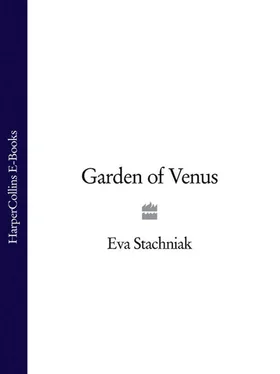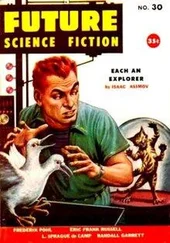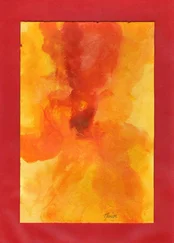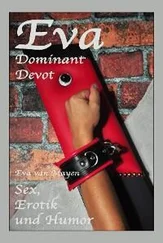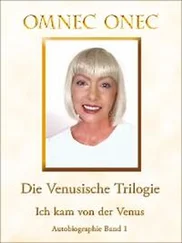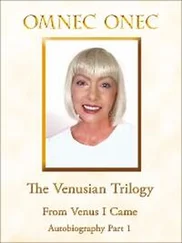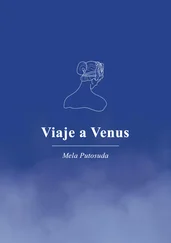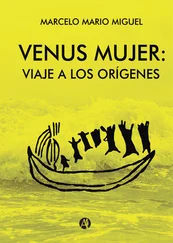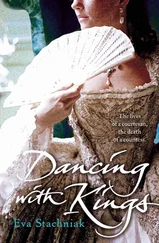‘Do you know the rules?’ Hadim asked, startling her with his presence.
‘Yes,’ she said, emboldened by the moon. ‘The rules do not allow holding any woman in the Palace against her will.’
‘The same rules also allow for killing anyone who has left. You should remember that.’
He was looking at her. There was much softness in his eyes, beside the sadness she had noticed before. She smiled.
‘The secrets of the Palace may not be shared among the living.’
Slowly, as if she were asleep, she opened her shirt and bared her breasts. He did not stop her. He did not touch her either, but stood there looking at her for a long time. She didn’t move.
She removes the clanking bells from her arms and knocks on the door to his room.
‘Come in,’ the master of the maidens says, lifting his eyes from a thick leather-bound volume.
‘I’ll die here if you don’t help me,’ she says and holds her breath. With one word he could have her flogged. With one word he could have her begging for her life.
He closes the book and motions to her to come closer.
‘You won’t die,’ he says. ‘Your eyes have nothing but life in them.’
He hands her a cup of coffee and motions to her to drink. She takes a sip, then another, but he shakes his head. ‘Drink it all up,’ he says.
In her coffee grounds he reads her future. He doesn’t talk of death without pain. He sees five dogs that bring her gifts. He sees three camels with more gifts and light shining in her way and a great door opening up. There is a tree too, its branches touching the sky. A tree with thick foliage, its branches laden with fruit.
‘Please,’ she whispers. ‘Tell me what to do.’
The master of the maidens stares at her coffee grounds. ‘You will travel far and wide,’ he says, smiling at her. ‘There is no cage in this world that will hold you.’
‘Will I be rich,’ she asks, pleased by what she takes as a promise of a merchant husband who might take her with him on his journeys.
‘Yes,’ he says. ‘Richer than you can imagine.’
‘Happy?’ she asks.
He puts her hand down and shakes his head. ‘This,’ he says, ‘your coffee grounds do not reveal.’
There is a long moment of silence. She moves her fingers to her blouse, wanting to open it as she did before, but he extends his hand and stops her. It is a warm, chocolate colour against the whiteness of hers. When his fingers touch her lips, she kisses them.
‘Tell me what to do,’ she asks. ‘Please.’
‘I’ll never have children, but this does not bar me from having pleasure,’ he says.
She closes her eyes and feels his hand caress her neck.
She is to wait for the time of great commotion. When she sees the camels in the courtyard, she has to be ready. She will have to climb down the vine to the courtyard, wrapped in a servant’s yashmak. It is high time for the Princess might well have noticed the change in her. She has become careless, impatient. The other day, she turned so abruptly that one of the slaves dropped the tray of coffee cups and smashed them all.
‘Will you be there?’ she has asked, but the master of the maidens shook his head. No one should see them together. But under the jasmine bush, she will find a basket she will carry right outside the gates.
On the fourth day, at dawn, she hears a soft tap on the door. The Princess is fast asleep, and Sophie dresses quickly, in the dark. Pantaloons, a kaftan. The plainest yashmak she can find. The bells she stuffs under the big cushion in the corner.
There is no one in the hall when she opens the window. Outside, she holds on to the thickest of the vine, and doesn’t look down. For a moment she is the child in Bursa again, Dou-Dou who can outrun every boy and climb the tallest trees. Her hands tell her that the vine is old and sturdy.
On the ground, under the jasmine bush, she finds the basket. Inside there is a gift. Nazar Bonjuk, a blue glass eye to guard her against the evil look. She pins it to her kaftan and waits for what seems a long time, until the gates open and the caravan arrives. As soon as the first camel enters, she leaves her hiding place and heads to the gate. A servant on her master’s errand. When the time comes, the master of the maidens said, eyes will be averted, swords will stay in their sheaths, and no one will be sent after her.
The guard takes one look at her basket and waves her through.
At Graf von Haefen’s palace, their arrival was anticipated with visible impatience. As Ignacy’s carriage approached the front courtyard, Thomas saw that one of the Graf’s Swiss guards was standing on tiptoe, shouting in the direction of the carriage house, summoning a groom to hold their horses. A tall footman who had been waiting in the open doors disappeared as soon as he saw the carriage roll in.
‘Gossip I take to be not unlike cancer,’ Ignacy said, oblivious to the signs of impatience they were the source of, concluding the monologue of the last ten minutes. ‘Insidious. Surfacing when we think it conquered.’ He hadn’t changed at all, Thomas thought, if one overlooked the grey in his hair.
Thomas was not paying as much attention as he perhaps should have. But why really? The countess, like most women of her class, had had many lovers so did it really matter if this German Graf had been one of these liaisons amoureuses? He could see why Ignacy was so keen on her unprecedented influence in St Petersburg. (‘After all, the Tsar, Thomas, is her close friend and, I take it, quite ready to listen.’) Why was it ‘unprecedented’, Thomas could not tell, but it had to have something to do with the late Count Potocki’s position at the Russian court. Or with the perennial Polish hopes, doomed fights for the lost independence. Yes, the Poles had been dealt a rotten hand. No other country had been eaten alive in the middle of the Enlightened Europe and told it was for her own good. But wasn’t it all part of what old Europe had always been? A whore siding with the strong and the mighty. Preening herself for the favours of the rich?
‘Only one does not die from being talked about, Ignacy,’ he said.
Graf von Haefen’s palace was a two-storey sand-coloured edifice in the Renaissance style. On the entrance gate of wrought iron two plump-looking angels were clinging to their posts. The footman, still panting from a rushed run upstairs and back, the gold trim of his crimson livery slightly dull at the edges, led them into a small vestibule whose tapestry of nymphs, monkeys, and flowers was reflected back in giant gilded mirrors. A few moments later, a thin, young woman appeared, black hair coiled around her head. The diamond on her neck, Thomas thought, could have paid for a good pair of horses. She extended her hand to be kissed. Ignacy took it first, in both hands. Then Thomas bowed over it, awkwardly, merely brushing it with his lips.
‘Mademoiselle la Comtesse! How is your dear Maman? Has she slept well? Has the pain lessened?’
‘You’ve arrived at last, Doctor,’ Mademoiselle la Comtesse said, ignoring Ignacy’s questions. Her eyes were bloodshot, her hands trembled slightly, but her voice was calm and composed. ‘Maman has been waiting all morning.’
The countess’s daughter was wearing a simple morning dress, and, Thomas noted with some bemusement, her right cuff was stained brown. Youth made her attractive in a coltish sort of way, but she could do with some fresh air and less coffee. There was a gauntness to her face he did not quite like.
‘Doctor Lafleur I spoke to Graf von Haefen about,’ Ignacy said, pointing at Thomas who bowed slightly, ‘straight from Paris. Heartily recommended by Baron Larrey.’
Читать дальше
